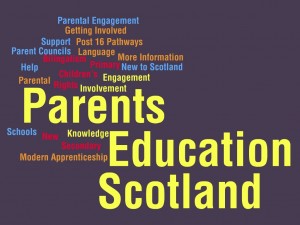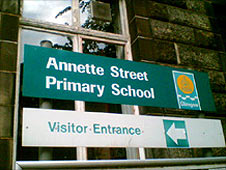

We asked 164 parents from ethnic minorities about the Scottish Education system and their children’s school – 73% did not know what the Curriculum for Excellence was.
Gathered Together are putting together a series of workshops to help parents understand and be more involved in their children’s education and what happens in schools.
We will work with the experts in each field to help those parents who are new to Scotland or those who have grown up in a different education system to help explain different stages and aspects of education.
Our partners will include:
Each of the six workshops will be run in both Edinburgh and Glasgow from 10.30-12.30pm. (For details about individual sessions go to our events page)
Places are limited so please book your place as soon as possible by filling out the registration form at the link below:
https://www.surveymonkey.com/s/JC5PRV9
| Workshop | Glasgow Adelphi Centre |
Edinburgh Quaker Meeting House |
|---|---|---|
| Primary School Information | 30 September | 1 October |
| Secondary School Information | 7 October | 8 October |
| Post 16 Education and Choices | 21 October | 22 October |
| Parental involvement and engagement | 28 October | 29 October |
| Mother tongue- at home and school | 4 November | 5 November |
| Children’s Rights in Scotland | 11 November | 12 November |
Lorna Anderson, an English as an Additional Language teacher based in Glasgow, has taken time out from her dissertation writing and written a blog for us about her work with the families of the children she supports.
I have recently completed the Post Graduate Certificate in Supporting Bilingual Learners in the Mainstream Classroom. We had to carry out a project that addressed concerns we had around supporting EAL learners. Where I worked at the time, parents with limited English language rarely engaged with the school. I talked to these parents at parents’ night and found that they lacked confidence and didn’t believe they could be involved in their child’s learning due to the language barrier. Supporting their children with homework was the biggest issue, as it was generally the traditional tasks such as spelling and writing sentences. Parents prioritised their child’s ability to use English and placed little value on their own first language. I decided to run a series of workshops, with help from interpreters, for these parents on supporting their children with homework. I focused very much on the positives, what parents could do to help.
Firstly, we looked at the reading books that went home and the types of literacy skills they could develop with them using the visuals – regardless of what language the words were written in; skills such as making predictions, recounting the story, speculating and sequencing. I emphasised that developing the ability to make reasoned predictions, for example, is the same skill no matter what language it is in, and that research had proven that you can transfer concepts to a second language effectively if they are embedded in the first. We practiced asking good questions, and the children had the opportunity to come and work with their parent(s) on the aspect we had been looking at that day.
Secondly, it was important to emphasise the value of maintaining first language at home. I made up a series of story packs, which contained a dual language story with supporting games and props. Parents could use these in the same way as the homework reading books to develop literacy skills, plus use the dual language text to share stories and talk about them together at home. These were loaned out weekly and swapped for a new one the following. They were a great success, and very popular with both parents and children!
The parents all said they felt much more confident at the end of the project and were very grateful for the support. Some of them came into school later that year to read stories in their own languages to different classes – something they said they wouldn’t have even considered before. That was the best outcome I could have hoped for!
 Today we were invited to the world premier of “Our children’s future- learning in Glasgow” at Annette Street School in Govanhill. The schools and nursery in Govanhill (Annette Street, St Brides, Cuthbertson, Holy Cross and Govanhill nursery) had been working together to make a short film for new parents, explaining, in their own words the important information about schools in Scotland. It was generously funded by Eurocities and the Scottish Traveller Education Programme, particularly to help the Roma population in the area. Govanhill has always been a diverse area with families from Ireland, Pakistan, Poland, Slovakia and Romania making their homes here. Parents who are new to Scotland are often unaware of the differences between here and their home country- the right to get a place in nursery for 3-4 year olds, the fact that primary school education starts when children are 5 and what children should bring for gym class.
Today we were invited to the world premier of “Our children’s future- learning in Glasgow” at Annette Street School in Govanhill. The schools and nursery in Govanhill (Annette Street, St Brides, Cuthbertson, Holy Cross and Govanhill nursery) had been working together to make a short film for new parents, explaining, in their own words the important information about schools in Scotland. It was generously funded by Eurocities and the Scottish Traveller Education Programme, particularly to help the Roma population in the area. Govanhill has always been a diverse area with families from Ireland, Pakistan, Poland, Slovakia and Romania making their homes here. Parents who are new to Scotland are often unaware of the differences between here and their home country- the right to get a place in nursery for 3-4 year olds, the fact that primary school education starts when children are 5 and what children should bring for gym class.
All this information, and more, was covered in the film- but more importantly it was given by parents who have already gone through the system and were talking in their mother tongue. Hearing from another mother in your language what happens in school is far more reassuring and easy to understand- hearing it from the “horse’s mouth”. The film also had children from the schools talking about what happens in school- from showing off the “bug hotel” in the school play ground to demonstrating what to wear for gym class.
It was a real pleasure to attend, all the film stars looked so pleased and a real effort was made to make the event special- red carpet, bouquets of flowers for the mothers who appeared in the film and huge slices of cake served after the premier. Events like this help families feel a part of the school, giving a sense of belonging and the film has a far more lasting legacy- helping new families understand their children’ school.
You can see the film on the STEP website here
We are currently analysing the responses to the detailed questionnaires we did with parents from ethnic minority parents. Some of the answers indicated that there were gaps in knowledge, parents weren’t sure what the Curriculum for Excellence was, were confused about what exams their children would sit (several parents thought they sat GCSEs and A levels) and less than 5% of parents knew about Modern Apprenticeships. From the questionnaires it was clear there was a real need for more information- in the words of one parent “I really want more information to be available to parents like me to improve our understanding and be able to help our children more”.
After a few discussions and some shaping and thought, it started to look like a viable plan. The team got together on Tuesday to really thrash stuff out and start to make plans. There are a few more details to work out, but we will be able to announce details and dates for some really exciting and different training in the coming days. We are planning for the autumn term and things are moving along pretty well!
Further details should appear here at the back end of next week, however, in the interim, get in touch with us if you have any ideas or feedback about things you feel we could be doing: we are always happy to hear!
21st May is the World Day for Cultural Diversity for Dialogue and Development and what a way to celebrate!! The Gathered Together Team at BEMIS introduced their brand new publications in which they share their experiences of working to support ethnic and cultural minority parents to become more involved in their children’s education and the school community. The event took place at the Scottish Parliament and was hosted by Stewart Maxwell (MSP) Convenor of the Education and Culture Committee.
My name is Judy Wasige and I am one of the Participation and Development Workers with the GT Team. Although it is only my fourth day in post, I already feel like part of the team because reading the reports has given me an opportunity of recreating their journey. Being an Ethnic Minority parent, I can relate to the findings in the reports and I know what it feels like not knowing how to help your children with their schooling because you lack the relevant skills to do so. For example, although I had taught Mathematics at secondary school in Kenya before coming to Scotland, I was unable to help my children with their mathematics homework. They used totally different approaches to solving problems from I knew so I chose not to ‘interfere’ with their learning in case I ended up confusing them instead. I also found it difficult understanding Scottish qualifications, including reading SQA certificates and was unable to advise them on progression pathways. I knew how important it was for me to be involved but left it up to them to find their way, which left me feeling guilty.
It was inspiring to hear Liz, Richard, Marion and Anna talk about their work and to see some of the parents, children and teachers who have been involved with the project so far. A wide range of stakeholders, including from Scottish Parent’s Teacher’s Council (SPTC), Education Scotland, General Teaching Council for Scotland (GTCS), Skills Development Scotland (SDS) , Local Authorities, English as an Additional Language (EAL) Departments and Community Groups, Further and Higher Education also attended the event. The children from St Albert’s and Golfhill Primary were very excited to see each other in the video ‘Parents as Partners’ which was also launched on at the event.
Considering the rapidly changing school population, these publications are useful in raising awareness of the issues faced by ethnic minority parents, sharing good practice and highlighting gaps in policy and practice.
For all the reports just click here
Here is a link to the video